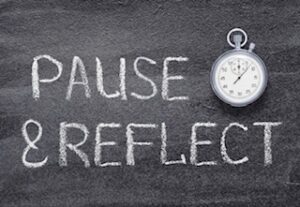In the midst of interpersonal conflict, it’s difficult to be kind to the other person – no matter how kind a person we may usually be. It is also difficult to be kind to ourselves. It’s understandable that when our equilibrium is off due to tension and the inability to get out of hurt, blame and defensiveness, that calling on our kindness is not a way of being that we can imagine, much less achieve.
In order to engage at these times, to effectively contribute to resolution, to move on, to retain our dignity, to be able to acknowledge our contribution to the tension, to apologize, to forgive, and to reduce the negativity, it helps to take a close look at kindness as a measurement of conflict mastery.
This week’s Conflict Mastery Quest(ions) blog suggests that there are ways to bring on our kind selves and hold onto that when we are offended. It’s not easy. Here are some reflective questions that might facilitate kindness when in conflict:
- When you are kind, in the usual course of life, what does kindness look like? What does it feel like?
- How do you think you are perceived by those on the receiving end of your kindness?
- When you are not at your kindest how do you interact?
- How are you perceived at these times (in response to the previous question)?
- What conflict situation comes to mind in which you know you were kind and perceived as such?
- What made kindness an easy and natural way for you to relate in that situation?
- Considering a dispute in which you were not kind to the other person, what was the main characteristic that came out that you are not proud of? In what way were you not kind to yourself in that situation?
- What stopped your kind self from interacting?
- If you were to have brought kindness to that dispute, what impact might this have had on the other person? What impact might your kindness have had on the conflict?
- What impact might your kindness have had on you?
- What else occurs to you as you consider these questions?
- What insights do you have?
(Popular- from the archives)



 Two things that come to mind that many of us have challenges with when someone provokes us, are how to pause and to reflect when emotions are bubbling up inside us and we cannot really think straight – if at all. More often than not we react and regret. Something the other person says or does – or doesn’t say or do – sets us off and we spiral downwards. At these times – at some level of our consciousness – we perceive the other person is undermining us, challenging us, questioning us, even threatening us! Something we needed or expected from them is not forthcoming. Something feels unstable within us and around us. Something we trusted – about the other person or ourselves – feels elusive. Something scares us and knocks us off our equilibrium. Many emotions take over – anger, disappointment, hurt, sadness, betrayal, shock, frustration, fear and so on.
Two things that come to mind that many of us have challenges with when someone provokes us, are how to pause and to reflect when emotions are bubbling up inside us and we cannot really think straight – if at all. More often than not we react and regret. Something the other person says or does – or doesn’t say or do – sets us off and we spiral downwards. At these times – at some level of our consciousness – we perceive the other person is undermining us, challenging us, questioning us, even threatening us! Something we needed or expected from them is not forthcoming. Something feels unstable within us and around us. Something we trusted – about the other person or ourselves – feels elusive. Something scares us and knocks us off our equilibrium. Many emotions take over – anger, disappointment, hurt, sadness, betrayal, shock, frustration, fear and so on.